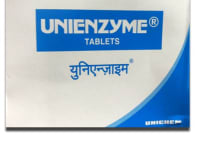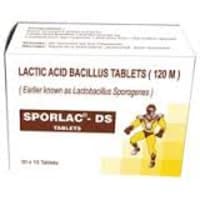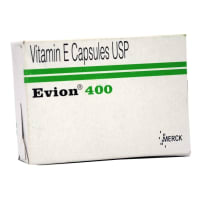USED FOR:
Bacterial infections
Inflammation of gums
COMPOSITION:
Sulfadiazine (1%)
Chlorhexidine Gluconate (0.2%)
Therapeutic Uses:
anti infectives
derma

No interaction found

WEIGH RISKS VS BENEFITS
Argisept 1%/0.2% Cream may be unsafe to use during pregnancy.Animal studies have shown adverse effects on the foetus, however, there are limited human studies. The benefits from use in pregnant women may be acceptable despite the risk. Please consult your doctor.

No information is available on the use of Argisept 1%/0.2% Cream during lactation. Please consult your doctor.

SAFE
Argisept 1%/0.2% Cream does not usually affect your ability to drive.

Argisept 1%/0.2% Cream is probably safe to use in patients with kidney disease. Limited data available suggests that dose adjustment of Argisept 1%/0.2% Cream may not be needed in these patients. Please consult your doctor.

Argisept 1%/0.2% Cream is probably safe to use in patients with liver disease. Limited data available suggests that dose adjustment of Argisept 1%/0.2% Cream may not be needed in these patients. Please consult your doctor.
Uses of Sulfadiazine
Sulfadiazine is used in the treatment of bacterial infections.
How to use Sulfadiazine
This medicine is for external use only. Use it in the dose and duration as advised by your doctor. Check the label for directions before use. Clean and dry the affected area and apply the cream. Wash your hands after applying, unless hands are the affected area.
How Argisept 1%/0.2% Cream works
Sulfadiazine is an antibiotic. It stops the bacteria from producing folic acid, a nutrient required for bacterial multiplication.
Common Nausea, Vomiting, Skin rash, Allergic reaction.
Expert advice for Sulfadiazine
Complete the full course of sulfadiazine treatment to clear the infection and to prevent the development of bacterial resistance.Consult your doctor immediately if you develop any infection as long term use of sulfadiazine is known to cause secondary infection.Avoid exposure to sunlight as sulfadiazine may increase the sensitivity to the sun.Take sulfadiazine with caution if you have diarrhea, sore throat, stomach or intestinal infection; or if you have a history of asthma, glucose-6-phosphate dehydrogenase (G6PD) deficiency or any other blood problems.Take necessary precaution if you have diabetes as sulfadiazine may cause low blood sugar.Do not drive or operate machinery as sulfadiazine may cause dizziness.Do not consume alcohol along with sulfadiazine as it may worsen the side effects.
Q. Is sulfadiazine an antibiotic?
Sulfadiazine belongs to class of medicines called sulfonamide antibiotic
Q. Does sulfadiazine contain sulfa?
It contains sulfa
Q. Is sulfadiazine the same as sulfasalazine?
No. Sulfadiazine is different from sulfasalazine.
Uses of Chlorhexidine Gluconate
Chlorhexidine Gluconate is used in the treatment of inflammation of gums and bad odor from mouth.
How to use Chlorhexidine Gluconate
This medicine is for external use only. Use it in the dose and duration as advised by your doctor. Check the label for directions before use. Clean and dry the affected area and apply the cream. Wash your hands after applying, unless hands are the affected area.
How Argisept 1%/0.2% Cream works
Chlorhexidine Gluconate kills the harmful bacteria and fungi by attacking their outer covering.
Common Altered taste, Application site irritation, Teeth discolouration.
Expert advice for Chlorhexidine Gluconate
Use Chlorhexidine Gluconate after meals, it may affect the taste of foods and beverages. For maximum effectiveness avoid rinsing mouth (with water or any other mouthwash), brushing teeth, eating or drinking for 30 minutes after using the Chlorhexidine Gluconate. Chlorhexidine Gluconate may cause permanent discolouration of some tooth fillings. To minimize discolouration, brush and floss daily, focussing on the areas which begin to discolour. Do not mix/dilute Chlorhexidine Gluconate with any other product. Avoid contact with eyes and ears. If the solution comes in contact with your eyes, rinse well with water. Notify your doctor if you are or planning to become pregnant or are breastfeeding.
Q. How does Chlorhexidine Gluconate work?
Chlorhexidine Gluconate belongs to a class of medication call antiseptic. It acts by killing as well as preventing bacterial growth. It kills bacteria by interacting with its cell surface
Q. Does it burn?
It is not generally known to burn. Please inform the doctor in case of any side effects
Q. Is Chlorhexidine Gluconate an antibiotic/antifungal/cure acne/cause cancer/good for canker sores?
Chlorhexidine Gluconate is not antibiotic/antifungal. It is not used for curing acne and it does not cause cancer. Canker sores (small and shallow ulcers of the mouth) if mild to moderate then can be controlled by using Chlorhexidine Gluconate mouthwash
Q. Is Chlorhexidine Gluconate safe?
Chlorhexidine Gluconate is safe when taken for an indication and at a dose strictly instructed by your doctor
Q. Is Chlorhexidine Gluconate an over the counter or prescription only drug?
Chlorhexidine Gluconate is an over the counter drug and not a prescription drug
Q. Is chlorhexidine gluconate whiten teeth/contain iodine/stain teeth?
Chlorhexidine gluconate is not used to whiten teeth. It does not contain iodine. It may stain the teeth slightly but this may be removed by brushing with a normal toothpaste
Q. Does Chlorhexidine Gluconate mouthwash expire?
Chlorhexidine Gluconate mouthwash has an expiry date. It should not be used beyond that date.


 Argisept 1%/0.2% Cream
Argisept 1%/0.2% Cream  Bookmark
Bookmark





















